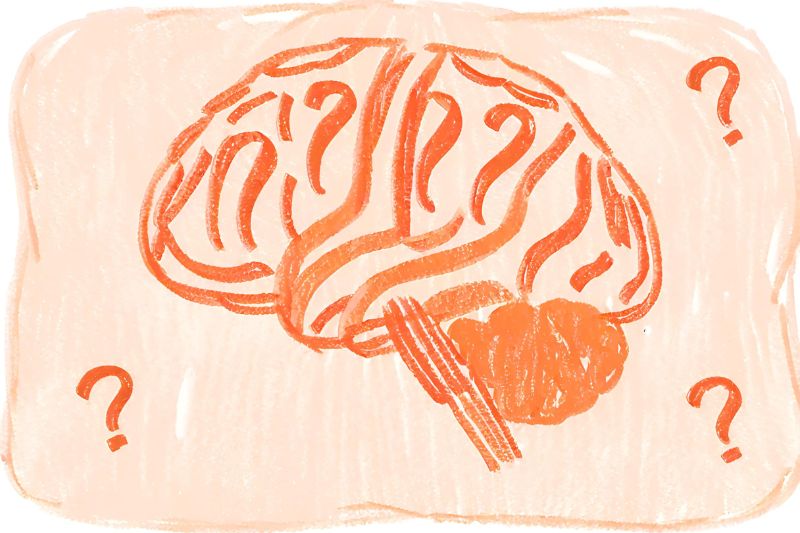5 Communication Skills That Will Improve Your Relationships
Looking to build new relationships or improve your existing connections? These 5 communication skills will help you to become a better partner, friend, colleague and family member.

Strong, healthy relationships are one of our most vital support systems as humans. Whether it’s a romantic partner, a friend, or members of your family, it’s really important to nurture and respect these bonds. Time and circumstances will cause relationships to shift and change, but as long as you invest in them, real connections can survive almost anything.
One of the best things you can do for your relationships is work on your communication skills. After all, it is how we interact with others that often defines our connections.
Let’s explore 5 communication skills that are key to building strong relationships.
1. Practise empathy
We start with something that might not sound like a communication skill per se, but it actually dictates how you respond to others. Empathy refers to your ability to put yourself in another person’s shoes to understand their feelings. It’s a step beyond sympathy, which is when we feel sadness or pity for a person because of what they are experiencing.
For example, rather than thinking, “It’s sad when we lose a loved one, so I feel sorry for my friend whose grandma just died,” an empathetic person would consider how they would feel if their grandma passed away, as well as acknowledging other circumstances in the friend’s life that will be influencing how they process this event. Empathy provides a more vivid insight into how other people think, feel and behave.
To improve your ability to practise empathy, you should expand your understanding of other people’s experiences. You can do this by reading more books, keeping up with current events, and following people on social media who have different backgrounds or circumstances to you.
A great way to learn more is also to ask! Rather than assuming how a person is feeling, ask them and listen carefully to the answer.
2. Active listening

Many of us are bad listeners, and we don’t even know it. How often have you been looking at someone who is talking to you, only to realise that you’ve spent the last 20 seconds thinking about what you might make for dinner later? This is a bad habit that can undermine respect and understanding in relationships.
To combat it, you need to start actively listening. This means not just looking at someone and hearing what they are saying, but really trying to understand the point(s) they're communicating. As well as making people feel respected, active listening will allow you to learn more about those close to you and respond appropriately when they need advice or want to address a problem.
Here’s a few tips to help you become an adept active listener:
- Put your phone away
- Maintain eye contact
- Provide cues like nods of the head to show them that you are paying attention
- Avoid formulating your response in your head while they are still talking
- Don’t interrupt—only speak when they have finished their point
If a person finishes talking and you feel like you missed something or don’t quite understand, ask further questions. When you think you’ve done a good job of listening, confirm this to the speaker by recapping their main point.
3. Be assertive
This skill has developed something of a bad name, as it is sometimes mistaken for meaning to be pushy or confrontational. However, being assertive simply means clearly and confidently expressing your needs and opinions. Done right, it allows you to stand up for yourself without hurting people’s feelings or being aggressive.
An example of assertiveness in action is the use of “I” statements instead of “you” statements. Let’s say a friend said something that hurt your feelings. Rather than telling them: “You were rude and it hurt me”, reframe it as: “I felt sad when that was said. Can we talk about it?” In other words, get them to acknowledge your feelings without being accusatory or placing the blame fully on them.
Your approach to being more assertive will depend on your current communication style. If you usually err on the side of being passive and quiet, start to let people know your feelings or preferences in low stakes scenarios, like selecting which film to watch on movie night. You can then build up to getting your views across in more delicate or serious situations.
More of a bold, outspoken person? Consider how this approach may be interpreted by others, particularly those who are not that forthright themselves. Rein it in a bit—your points are more likely to be considered if they are expressed in a direct but respectful manner.
4. Learn to say "no"

If you find yourself constantly saying “yes” to things to please other people, you’ll find that your relationships become unfulfilling and imbalanced as a result. Alternatively, if you find that you never want to say yes to plans with a certain person, you should consider that the relationship may no longer serve you (or you them).
Sometimes being a good friend means attending social events when you don’t feel like it. For example, if someone close to you publishes a book, you should probably go to the launch event, even if you’re not in the mood that night. Aside from milestones like this, there are plenty of occasions when you should put your own needs first.
We say no to things for all sorts of reasons. You might need time to recharge, you might not be able to cover the financial costs involved, the nature of the event may not align with your beliefs, or you might simply just not want to do the thing!
The problem is, saying no can be hard, because it feels uncomfortable. Once you get used to it, though, it can be a powerful tool, as it allows you to set boundaries and protect your wellbeing. With people you don’t know very well, “no” can be a complete sentence. However, if you want to be more tactful about it, here are some guidelines to saying no:
- State your choice clearly
- Be gracious and thank the person for asking
- Provide a short explanation (if you feel it is necessary)
- Suggest an alternative date/event (but only if you want to)
Those with whom you have a good relationship should be fairly understanding when you choose to say no. If they aren't, use your assertiveness skills to reiterate your choice.
5. Body language
Our final communication skill is all about non-verbal cues. People often underestimate the power of body language and how it influences the way people interpret and respond to us. You might be listening intently to what someone is saying, but if your arms are folded and you keep looking down, it’s not very convincing.
Most of our body language is unconscious, so next time you’re having an important conversation, make an effort to consider how you’re holding yourself. Are your arms crossed? This can come off as defensive and makes it seem like you’re not really participating in the conversation. Do you find yourself fidgeting? This gives the impression that you are bored or distracted. Looking around the room or staring for long periods of time? This suggests that you are not really paying attention.
To use body language to your advantage when communicating with people, consider the following tips. When someone else is talking, maintain eye contact with them (but keep blinking), adopt an open posture with relaxed shoulders, and nod your head to show that you are keeping up with the conversation.
Bonus tip: To really show that you’re interested in what’s being said, tilt your head to one side and raise your eyebrows slightly.
That concludes our 5 communication skills to improve your relationships. Give them a go and watch your connections flourish!
For more tips like these, check out the rest of the ManageMinds blog.
Post Date:
Author: Isobel Robb
Explore More Articles
3 Mental Health Myths Your Therapist Is Sick of Hearing
It's great that more people are talking about mental health, but not everything you hear is necessarily true. Don't fall for these 3 mental health myths!
Feeling Worried? Challenge Anxious Thoughts with These Simple Questions
Stuck in a spiral of anxious thoughts? Use these 3 simple questions to challenge negative thinking and adopt a healthier mindset.
ManageMinds Explains... Narcissists
Even wondered if you or someone you know may be a narcissist? In this guide we cover what narcissistic personality disorder is, as well as the signs you need to watch out for.


